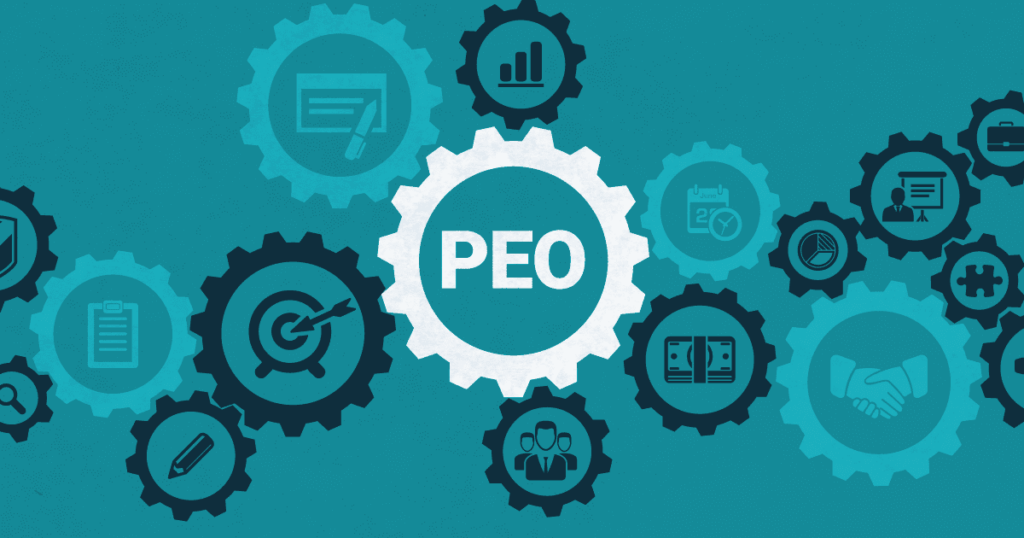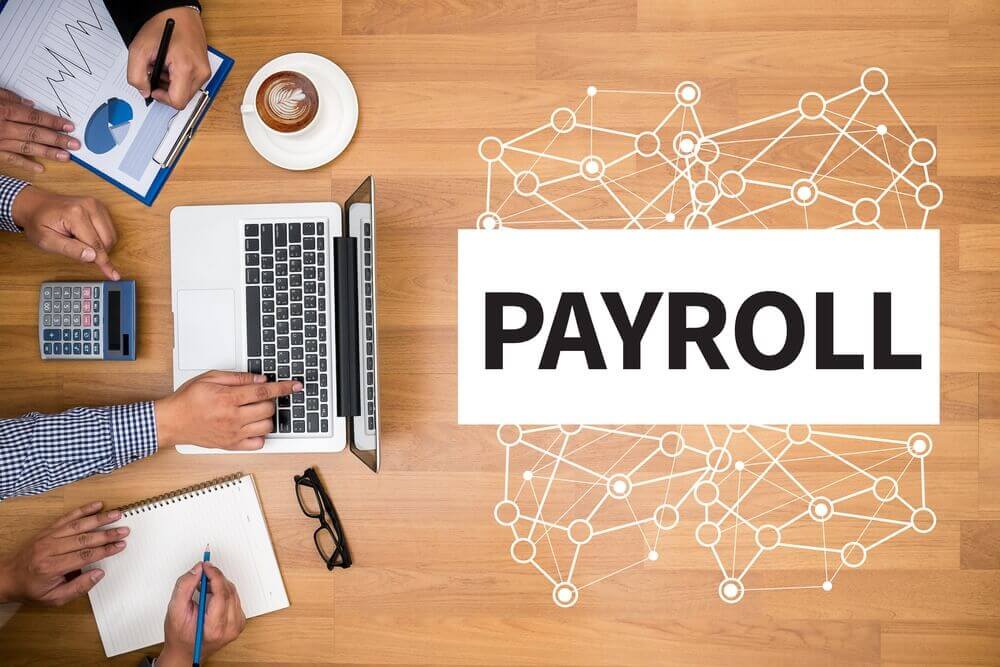Differences Between PEO and Other Services

December 28, 2023
Choosing the right HR service can transform a business's efficiency and compliance. Understanding the types of PEO models allows smarter decisions when peeling back the layers between options.

Professional employer organizations (PEOs) have rapidly gained prominence as an efficient HR management model for modern businesses. By establishing a co-employment arrangement, PEOs integrate a wide spectrum of HR capabilities into a comprehensive offering. This article provides an in-depth comparison between PEOs and other major HR service types like HRIS, payroll providers, ASOs, and HROs. Evaluating the pros, cons, and types of PEO relationships can empower organizational decision-making.
Understanding PEO’s unique position
A professional employer organization (PEO) is a company that provides comprehensive HR services to small and mid-sized businesses by establishing a co-employment arrangement. Under this model, the PEO serves as an offsite HR department, becoming the employer of record for tax purposes and sharing HR responsibilities with the client company. By assuming critical employer responsibilities and liabilities, PEOs allow businesses to focus on their core functions.
PEOs offer a wide range of HR services beyond payroll processing including benefits administration, compliance assurance, HR technology, retirement services, workers’ compensation programs, talent acquisition, risk management, training, and more. Their full-service model provides clients with an economy of scale in managing complex HR tasks.

Overview comparison: PEO vs Other HR Services
Companies today have access to a dynamic ecosystem of HR services beyond just PEOs—ranging from payroll processors to HR software to benefits administrators. Each model has its own strengths and limitations. Before diving deeper into contrasting PEOs against specific service types, it is valuable to briefly visualize a broad comparison.
| Category | Service Scope | Employer Status | Compliance Handling | Primary Benefits |
| PEO | Comprehensive HR functions as co-employer | Co-employer | Shared responsibility | Offload admin burden; access HR expertise/support |
| HRIS | HR software system | No employer status | Client responsibility | Automate HR workflows |
| Payroll Service | Payroll processing | No employer status | Client responsibility | Handle payroll accurately |
| ASO | Benefits administration | No employer status | Client responsibility | Administer benefits smoothly |
| HRO | Selective HR outsourcing | No employer status | Client responsibility | Access skills flexibly |
PEO vs. Human Resources Information System (HRIS)
While PEO vs hris software both aim to streamline HR operations for businesses, they differ significantly in their functionality. HRIS refers to the technology platform that helps manage employee data, HR workflows, reporting and self-service. It automates administrative tasks around recruitment, onboarding, time tracking, performance management, etc.
In contrast, PEOs not only provide integrated HR technology but complement such systems through hands-on services like benefits enrollment, compliance guidance, employee relations issues, strategic planning and more. The scope is thus much wider under a co-employment model. For example, while HRIS supports benefit plan setup, a PEO will additionally serve as the sponsor and administrator.
Where HRIS offers digital tools to organize HR processes with data analytics, PEOs offer high-touch delivery with tailored solutions. Small businesses lacking specialized HR expertise depend extensively on such human insight. A hybrid model deploying both PEO services and HRIS software enables robust infrastructure for growth.
PEO vs Payroll Service Providers
While payroll processing is included in PEO services, their capabilities span well beyond. Payroll providers typically run payroll cycles, handle tax payments, and prepare filings. But they possess limited employer-related compliance obligations.
Compare PEO vs payroll, PEOs integrate payroll into their comprehensive HR offering but also assume a statutory employer’s compliance risks regarding workplace regulations, health insurance, retirement plans, leave management, and more. This allows greater peace of mind for clients concerning IRS penalties or labor lawsuits.
Additionally, businesses may miss out on valuable guidance concerning strategic workforce decisions when working solely with payroll firms instead of PEOs. Being the employer for the record also lets PEOs negotiate better rates for workplace programs which would benefit clients. Hence for multifaceted HR solutions, the co-employment partnership model outweighs payroll providers.

PEO vs. Administrative Services Organization (ASO)
ASOs and PEOs may seem similar as they both aim to offer turnkey HR administration for companies through outsourcing arrangements. However, some key differences set them apart in the services landscape.
While ASOs provide support around benefits plan management, they do not assume an employer’s liabilities or compliance risks. In contrast, PEOs become the sponsoring employer for client health insurance and retirement plans. This transfers significant legal obligations including fiduciary duties, opening up access to large group plans.
PEO vs ASOs, PEOs also handle payroll, risk management, talent acquisition, leave policies, and other such HR capabilities under one umbrella. Their co-employment model creates greater economies of scale resulting in competitive rates even for small groups. With ASOs however, clients must integrate separate vendors for missing elements.
Hence PEOs enable a more well-rounded and cost-effective HR outsourcing solution that also eases administrative burdens considerably for clients. Their expansive legal employer status clearly provides strategic advantages beyond basic benefits administration.
PEO vs. Human Resources Outsourcing (HRO)
While HRO providers offer selective HR functional assistance like staffing, training or compensation services, PEO arrangement allows integrated delivery across the entire gamut of HR needs in an ongoing manner.
Depending on client requirements, HRO engages through short or long-term contracts to provide targeted HR expertise lacking internally. But the scope is limited only to agreed specialized tasks rather than assuming overall employer-related risks and workflow coordination.
In comparison PEO vs HRO, PEOs through their co-employment status provide continuous strategic guidance on HR issues to promote business health. Their back-office assimilation of payroll, compliance, data analytics, and other processes is more comprehensive. PEOs also enable access to big-company benefits and safety programs.
While HRO allows tactical solutions to bridge HR capability gaps, PEOs enable firms to entirely shift administrative burdens so they can focus on core business goals. Their breadth of integrated HR services and employer-grade infrastructure clearly suit growing companies better.
As companies aim to streamline HR workflows, PEOs have emerged as a holistic solution that eases administrative burdens through co-employment. When assessing PEOs against alternatives for managing talent, payroll, compliance, and other HR needs, their expansive service scope and risk-sharing approach set them apart.
Understanding the types of PEO partnerships allows growing businesses to make strategic choices aligned to their priorities, capabilities, and growth plans. While PEOs simplify complex HR tasks through economies of scale, complementary software tools like HRIS further enrich infrastructure. Ultimately by leveraging the right type of HR outsourcing model, companies can unlock strategic advantages to power their evolution.



